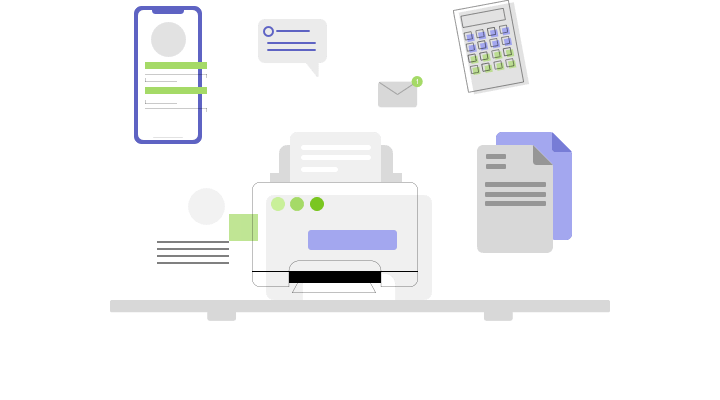
This means every transaction is recorded accurately, and your financial records are always up-to-date, simplifying month-end reconciliations and reporting. Managing business finances requires meticulous attention to detail, especially when it comes to categorizing expenses. While most costs fit neatly into predefined buckets like rent, utilities, or payroll, there’s always that odd collection of expenditures that don’t quite belong anywhere specific.
What is Miscellaneous Expense?
But creating an adequate cushion for unexpected miscellaneous costs and categorizing them properly will help ensure you’re prepared to manage them properly. By keeping detailed records and leveraging expert guidance, businesses can make sure they’re not leaving money on the table. Many businesses incur small but frequent fees from financial transactions. They often have to pay credit card processing fees, currency miscellaneous spending exchange costs for international payments, overdraft fees and wire transfer charges. While airfare and hotel stays are easy to track, smaller expenses like service tips, baggage fees, in-flight Wi-Fi, and ground transportation often slip through the cracks. To maximize deductions and ensure full reimbursement, keep a detailed record of all costs.

Managing Miscellaneous Expenses in Finance

You can use this grocery budget calculator to get a quick estimate of what you should be spending on groceries according to the USDA’s low-cost food plan. The average monthly expenses for a single person depend on where they live and how they live. Included in this cost is $516 a month for Oil And Gas Accounting housing, $241 for food and $309 for health care.
- These could include minor professional fees, small equipment repairs, or incidental supplies that directly support business activities.
- It’s easier to write the actual name of the creditor to help you track each debt.
- Discover the top AI tools and SaaS deals this holiday season to boost productivity and save big for your business.
- It’s hard to plan for everything and still make a zero-based budget—unless you create a miscellaneous category for about 5% of your take-home pay.
- Come tax season; you can write-off miscellaneous expenses in the same way you claim your other business operating costs on your tax returns.
- In addition, it’s important to understand that a miscellaneous expense for one business may not be a miscellaneous expense for another business.
What Is a Miscellaneous Expense? Examples & Tax Rules
- While they may seem minor, these costs can add up quickly, and if not tracked properly, they can cause headaches at tax time.
- For example, an advertising agency regularly entertains clients to build and maintain strong working relationships.
- In some cases, you can add your interest payments to the cost of the property involved instead of treating them as a miscellaneous business expense.
- In case these expenses increase, then they need to be given a separate account.
- Miscellaneous personal expenses, meaning costs in your personal life outside of your regular budget, do not qualify for individual taxpayer income tax deductions.
These are your miscellaneous expenses – and how you handle them can make a significant difference in your financial clarity and control. Miscellaneous expenses generally refer to minor, infrequent, or uncategorized https://libreriatextknow.com/2021/07/29/the-10-best-bookkeepers-in-houston-tx-with-free/ costs that fall outside of a business or personal budget’s primary expense categories. These are “catch-all” items for expenditures that do not have a specific, pre-defined home in an accounting system or financial plan. The term’s meaning can vary depending on whether it is applied to personal budgeting or formal business accounting.
Office Supplies and Maintenance
- I was talking to a relative a short time ago, and she was telling me what she paid every month for parking.
- If you don’t plan ahead, it can be easy to spend a lot of money on convenience foods or grabbing take out on the way home from work.
- These are costs that don’t fit into regular expense categories but still affect your financial record.
- Automation simplifies this process, ensuring accurate records without the hassle.
- Proper record keeping ensures that expenses can be verified for internal review, budgeting, or in the event of an audit.
- Businesses can better use their money and make the most of their resources if they can keep track of and cut down on miscellaneous expenses.
Small or large, any miscellaneous expense should go directly to your general ledger. Several items purchased for office use such as pens, books, archive boxes and other documents are another example of miscellaneous expenses. Even if you have turned some parts of your home into an office workspace, the cost incurred for office suppliers goes to miscellaneous expenses and can’t be claimed for tax deductions. The extra charges levied when conducting bank transfers from one account to another are one type of miscellaneous expense.
Leverage Expense Tracking Tools
I’ve lived with my parents for a bit so I have no idea how much these would be. Frugality is the mental approach we each take when considering our resource allocations. Don’t be afraid to break it down even further by listing each debt separately. So instead of just listing “credit cards,” break it down by listing every credit card you have (MasterCard, Visa, Discover, etc.).
Can personal expenses be considered miscellaneous expenses?
More than 40,000 businesses have saved $10 billion and 27.5 million hours with Ramp. Keeping track of business expenses may seem tedious, but with doola Bookkeeping, it becomes effortless. Our All-in-One Accounting solution provides a seamless way to managing your finances, from tracking expenses and reconciling transactions to generating tax-ready financial statements. Tracking miscellaneous expenses isn’t just about organization; it has a direct impact on tax savings. Up next, we will discuss the tax implications of these expenses and how businesses can take full advantage of deductions.

Not all miscellaneous expenses are tax-deductible, but many can be if they meet IRS guidelines. Understanding which costs qualify can help businesses lower their taxable income and maximize savings. It also helps them make good decisions about using their resources and create detailed plans for their overall budgeting strategies. By accurately predicting their needs for miscellaneous expenses, companies can stay ahead of the curve when it comes to managing their finances and ensuring they stay on track.
- These guidelines will differ by country, so for more information on what can be claimed as a home office expense, be sure to check with your country’s regulations.
- Typically, these expenses are minor and unpredictable, arising in various forms, and don’t directly support core business activities.
- Statement verification is the process that ensures financial documents such as bank statements are accurate, authentic, and compliant.
- EDI payments streamline B2B transactions by automating payment data exchange.
- Set aside a percentage of revenue or establish a discretionary monthly maximum to cover odd one-off expenses.
- As we will discuss in further detail below, miscellaneous expenses might consist of the purchase of a new office printer, a one-off marketing campaign, or fees paid to financial institutions.
- Miscellaneous expenses are items or services purchased after the business has started operating.
It’s okay to have a miscellaneous category but make sure that it’s broken down into smaller categories. List things out and allocate a certain dollar amount for each line item. The best way to control miscellaneous spending is by keeping a spending log for the next 30 days. Track where every dollar is spent and come up with your categories based on your tracking. Miscellaneous expenses are incidental, small costs that arise in the course of running a business or managing personal finances.
